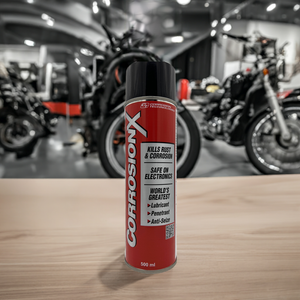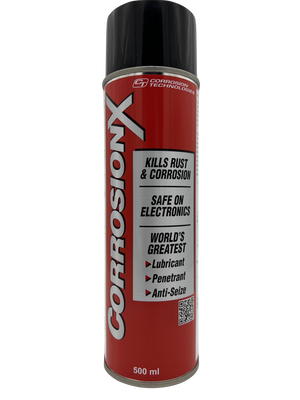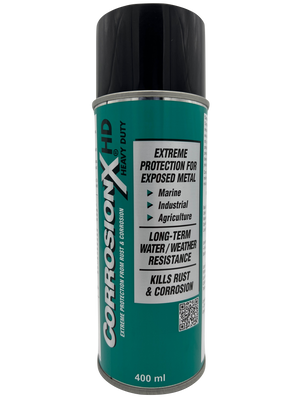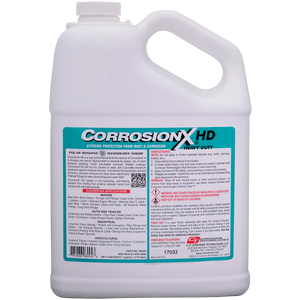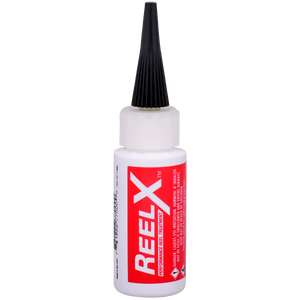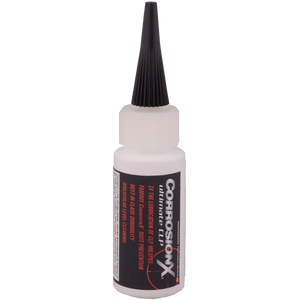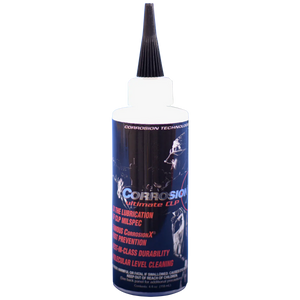Are you the type of shooter who meticulously cleans and polishes your firearm after every range session, or do you tend to stash your gun away until the next event without a second thought? Whichever category you fall into, there’s one thing that remains crucial to every gun owner: using the right gun oil to keep your prized tools of the trade in tip-top shape. Gun oil is a bit like the lifeblood of your firearm—if you pick the wrong one or forget to apply it properly, you’re in for a world of malfunctions, corrosion, or just plain old wear and tear. But how do you decide which oil is best for your needs? And why does it even matter so much? Buckle up, because in this ultimate guide, we’re going to explore the fascinating world of gun oils.
In the next few sections, we’ll delve into why gun oil matters more than you might think, break down the different types available, and discuss how to match each oil to the unique demands of various firearms—from compact pistols to precision rifles. We’ll also highlight why CorrosionX for Guns stands out as a cutting-edge solution for shooters seeking robust protection and long-lasting lubrication. Throughout this journey, we’ll keep things conversational, so you can soak in the information without feeling like you’re wading through a textbook. And who knows—you might even pick up a few valuable tips you never knew you needed.
So grab a seat, settle in, and prepare to discover everything you ever wanted to know about choosing the right gun oil. By the end of this guide, you’ll be armed (pun intended) with the knowledge to keep your firearms in prime working condition, no matter how punishing the conditions or how frequently you shoot. Ready? Let’s dive right in.
Why Gun Oil Matters More Than You Think
When you’re at the shooting range, smooth operation is everything. You don’t want to pull the trigger only to hear a dreaded “click” instead of a bang. You also don’t want your bolt to jam during a crucial moment, whether that’s a hunting trip in the middle of the woods or a competitive shoot in front of onlookers. The right gun oil can help you avoid these stressful scenarios by ensuring your firearm’s moving parts are ready to roll the moment you need them.
The Role of Gun Oil in Firearm Function
Think of gun oil as the unsung hero in your firearm’s story. It’s rarely flashy or attention-grabbing, but it’s always there doing the heavy lifting—reducing friction, preventing rust, and making sure that all the mechanical components work harmoniously. Without adequate lubrication, metal surfaces would grate against each other, creating heat and accelerated wear that can cause long-term damage.
Gun oil also serves as a protective barrier against moisture, which is enemy number one for metal. No matter how carefully you store or handle your firearm, the presence of moisture in the air can gradually lead to corrosion, especially when combined with temperature fluctuations and dirty residues. Over time, rust can weaken components, affect accuracy, and degrade overall reliability.
Protecting Your Investment
Firearms aren’t just tools; for many enthusiasts, they’re also an investment—both financially and emotionally. A well-maintained firearm can last for generations, while one left to the mercy of humidity, salt, dust, and grime can become a headache. If you’re looking to hold onto your guns for a long time, or if you’d like to pass them down to the next generation in near-mint condition, regularly lubricating them with high-quality oil is essential.
Just picture this: you have an heirloom rifle passed down through your family for decades. It still fires beautifully and bears only a few cosmetic marks that reflect its storied history. Now imagine if that same rifle had been neglected, stored in a damp basement without proper lubrication. Corrosion would have eaten away at its metal components, leaving it unreliable—or worse, unsafe—to shoot. This scenario underscores just how important it is to choose the right gun oil for your specific needs.
The Misconception About “Any Oil Will Do”
One common misconception is that any oil-based lubricant—be it your everyday motor oil or that leftover can of WD-40 in the garage—can do the trick. While certain general-purpose products might provide a short-term fix, they’re often not optimized for the high-pressure, high-temperature environment inside a firearm. Guns have unique lubrication requirements, and using an unapproved or low-grade lubricant can lead to suboptimal performance or even long-term damage.
In short, selecting a specialized gun oil isn’t a mere marketing ploy. It’s about ensuring that your firearm gets the exact kind of lubrication and protection it needs. Whether you’re a weekend plinker, a professional competitor, or a dedicated hunter, you’ll want to invest in the right product if you expect a consistently reliable shooting experience.
Understanding the Basic Types of Gun Oils
Not all gun oils are created equal. If you’ve ever strolled through the aisles of a sporting goods store or browsed online, you’ve probably noticed the wide variety of products on offer—each promising to be the “best” or “ultimate” solution. But what really sets them apart? Generally, gun oils can be grouped into two broad categories: synthetic oils and mineral oils. While both can lubricate and protect your firearm to some degree, their performance characteristics can differ dramatically.
Synthetic Gun Oils
Synthetic oils are crafted in a laboratory, allowing manufacturers to create substances with very specific properties. These oils are formulated from chemically engineered base stocks and additives, making them highly effective under extreme conditions. If you shoot in very hot or very cold climates—or if you tend to push your firearm to the limit (like running rapid-fire drills)—a synthetic oil may offer the kind of thermal stability you need.
One of the standout traits of synthetic oils is their resistance to viscosity breakdown at higher temperatures. This means that even under intense heat generated by rapid firing, a synthetic gun oil is less likely to thin out and lose its lubricating properties. Similarly, in freezing conditions, synthetics often remain fluid enough to keep metal parts moving freely.
In terms of corrosion resistance, many synthetic oils come loaded with advanced inhibitors that cling to metal surfaces like a magnet. This helps keep moisture at bay, which is critical for preventing rust spots and pitting. Furthermore, synthetic oils often have longer service life, which means you won’t have to reapply as frequently.
Mineral Gun Oils
Mineral oils, on the other hand, are derived from naturally occurring petroleum sources. While they can still provide basic lubrication and some degree of protection, they generally lack the advanced engineering and additives found in their synthetic counterparts. As a result, mineral oils might not perform as well under extreme temperature ranges or highly corrosive conditions. They can also break down faster, requiring more frequent reapplication.
That being said, there are shooters who prefer mineral oils for certain applications, especially if they’re dealing with vintage firearms or older mechanisms that might have been designed at a time when only mineral oils were commonly used. Some enthusiasts argue that mineral oils can sometimes preserve the integrity of older metal surfaces better, though this is often debated.
Balancing Performance and Cost
Cost can be a factor, too. Synthetic oils are generally more expensive than mineral-based counterparts. However, given that they often offer superior protection and can last longer between applications, many people find that paying a bit more upfront is worth it to avoid more frequent re-lubing sessions or the potential damage caused by inadequate protection.
In the end, whether you go synthetic or mineral depends heavily on your needs. Are you a high-volume shooter who demands peak performance under a wide range of conditions? Or do you have a handful of older guns that only come out once in a blue moon? Understanding these categories is your first step to making an informed decision about which product to apply to your cherished firearms.
Water Resistance and Corrosion Prevention: The Guardians of Your Firearm’s Integrity
One of the most underappreciated aspects of a good gun oil is its ability to repel water and ward off corrosion. No one wants to find orange rust blotches on their gun’s slide or the inside of a rifle barrel. In essence, corrosion is like a slow-growing disease—it creeps in unnoticed, gradually undermining the structural integrity of your firearm. Before you know it, performance suffers, and you’re faced with costly repairs or replacements.
Understanding Corrosion and Rust
Corrosion is a chemical reaction that occurs when metal interacts with moisture and oxygen. The result is typically rust, a brownish-red compound that forms on surfaces and eats away at the metal over time. When you’re out hunting in the rain or if you simply live in a humid environment, your firearm is constantly battling moisture. Even the slightest scratch or imperfection in the finish can become an entry point for water and oxygen to start their damaging work.
This is why choosing an oil with strong anti-corrosion properties isn’t merely a bonus; it’s almost a requirement. An effective gun oil will form a protective film on the metal—something akin to a force field that moisture can’t penetrate. This film also helps flush out existing moisture, ensuring that you’re not simply sealing in water droplets under the oil.
Why Water Resistance Is Key
If you’ve spent any time outdoors with a firearm—maybe trekking through the wetlands on a duck-hunting expedition or hiking through foggy terrain—you know that water is everywhere. And if water is everywhere, you need a gun oil that can stand its ground against it. Water-resistant formulas are engineered to bond with metal in a way that repels liquid, preventing it from settling into the micro-grooves or pores that exist on a metal surface.
In particular, if you’re someone who hunts ducks or geese, you’ll recognize the challenge of keeping your shotgun dry. Water-resistant oil acts like a raincoat for your firearm, ensuring that beads of water slide right off rather than accumulating in crevices where rust can form. By the same token, if you store your firearm in a place that isn’t climate-controlled, having an extra layer of protection against moisture can be a real game-changer.
CorrosionX for Guns: A Notable Solution
Among all the products on the market, CorrosionX for Guns is widely regarded as one of the top contenders in water resistance and corrosion prevention. Its specialized formula is designed to penetrate deeply into metal pores, pushing out any lingering moisture and sealing the surface against further infiltration. This can be especially helpful if you plan on storing your firearm for extended periods or if you frequently shoot under harsh environmental conditions.
What sets CorrosionX for Guns apart is the way it bonds with metal surfaces on a molecular level—almost like a magnet sticking to steel. This polar bonding technology ensures that the protective layer doesn’t just slide off or evaporate after a short time, giving you a longer-lasting shield against water and corrosion. In short, CorrosionX for Guns helps maintain your firearm’s structural integrity so you can enjoy reliable performance for years to come.
Lubrication Properties and Friction Reduction: Keeping Things Smooth
Everyone knows that metal rubbing against metal isn’t exactly a good thing—unless you enjoy friction, heat, and accelerated wear. Firearms are composed of numerous moving parts that must interact seamlessly for reliable cycling, ejection, and firing. A jam at the wrong time could cost you a competition or, even worse, endanger your safety. That’s where lubrication steps into the spotlight.
The Importance of Friction Reduction
When you pull the trigger, a series of mechanical events happen in rapid succession. For instance, in a semi-automatic pistol, the slide is forced back by the recoil, extracts and ejects the spent casing, then loads a fresh round from the magazine before returning to battery. Each of those movements involves metal surfaces making contact. Without adequate lubrication, these surfaces can grind against each other, gradually shaving off microscopic metal fragments and causing parts to wear out prematurely.
Over time, increased friction can lead to malfunctions like failure to feed, failure to eject, or even catastrophic failures in extreme cases. Think of it like driving a car without engine oil—the components will run for a while, but eventually, everything starts seizing up.
Choosing an Oil with Strong Lubricating Power
So how do you spot an oil that excels in reducing friction? Generally, look for oils labeled with anti-wear or extreme-pressure additives. These additives are designed to cushion metal-to-metal contact, minimizing friction even during rapid cycling or high-pressure firing sequences.
CorrosionX for Guns includes these friction-reducing properties as part of its core design. Not only does it work to prevent corrosion, but it also forms a slick surface that helps parts glide effortlessly. This is critical for competitive shooters who rely on split-second cycling, as well as for hunters who might need a quick follow-up shot if that big buck decides to bolt.
Extending the Lifespan of Your Firearm
A well-lubricated gun also means you’re less likely to replace worn parts down the line. By minimizing friction, you’re effectively reducing the stress placed on springs, bolts, slides, and other crucial components. This translates into fewer trips to the gunsmith for repairs, and more time enjoying your firearm the way it was intended.
Moreover, smooth operation is often directly related to accuracy. After all, a consistent cycling process can help maintain the rifle’s or pistol’s proper alignment and lock-up, potentially leading to more consistent shot placement. For precision shooting, every little advantage matters, and friction reduction can be a stealthy but significant factor in preserving accuracy over time.
Matching Gun Oil to Your Firearm: A Tailored Approach
Choosing the right gun oil isn’t just about reading reviews or picking the most expensive bottle on the shelf. Each type of firearm—be it a rifle, shotgun, pistol, or revolver—comes with its own quirks and requirements. By tailoring your oil choice to the unique needs of your gun, you can enjoy smoother operation, enhanced reliability, and better longevity.
Rifles and Precision Rifles
Rifles, particularly precision or bolt-action rifles, demand meticulous care. These firearms are often used in scenarios where accuracy is paramount. If you’re a hunter trying to land a perfect shot at long distances or a competitive shooter aiming for tight groups, any degradation in the rifle’s condition can throw off your aim.
Barrel Protection: The barrel is arguably the most important component for accuracy. Residual moisture or fouling can erode the rifling over time, leading to loss of precision. A high-quality oil with strong anti-corrosion properties—like CorrosionX for Guns—will safeguard those grooves that spin-stabilize your bullet.
Smooth Bolt Cycling: The bolt mechanism in a rifle needs to slide effortlessly, especially for follow-up shots. A friction-reducing oil ensures that the bolt operates with minimal resistance, lowering the chances of jams.
Long-Term Storage: Precision rifles are often stored for extended periods between hunting seasons or competitions. An oil that doesn’t evaporate quickly or gum up over time is essential for maintaining readiness.
Shotguns and Their Specific Needs
Shotguns, whether used for hunting or sporting clays, present a different set of challenges. They typically have larger bore diameters and are frequently exposed to outdoor elements like mud, water, and debris.
Resilience Under High Volume: Shotguns might fire multiple rounds in quick succession, especially during clay shooting events. The internal mechanisms can get very hot, and soot or residue can build up quickly. An oil that resists breakdown in high-temperature conditions is critical.
Moisture Defense: Bird hunters often find themselves in marshy or damp environments. If your shotgun isn’t well protected against water, corrosion can set in quickly. Opt for an oil that specifically advertises water-repelling properties.
Ease of Cleaning: After a full day of shooting, especially in muddy fields, you want an oil that makes cleaning easier rather than more cumbersome. Some oils can capture and suspend dirt particles, allowing you to wipe them away with ease.
Maintenance of Pistols and Revolvers
Pistols and revolvers are often more compact than rifles and shotguns, meaning that tolerances (the spaces between parts) can be quite tight. The smaller the gap, the more critical it is to have an oil that stays put without gumming up the works.
Trigger Mechanism Protection: A smooth trigger pull can be the difference between a crisp shot and a frustrating jerk. Using a thin, high-quality oil helps prevent buildup that could affect trigger feel.
Slide Action: In semi-automatic pistols, the slide is under significant stress. An oil with strong friction-reducing properties will help maintain a consistent slide action, critical for avoiding misfeeds or jams.
Safe for Diverse Materials: Modern pistols often incorporate polymer frames alongside metal slides. While most oils are compatible with polymers, it’s good practice to check that the oil you choose won’t degrade rubber or plastic components over time.
The One-Size-Fits-All Dilemma
You might have a diverse collection of firearms—perhaps a bolt-action hunting rifle, a semi-automatic shotgun, a compact pistol for concealed carry, and a classic revolver for target shooting. The question then becomes: Is there a single gun oil that can handle them all? In many cases, a versatile oil like CorrosionX for Guns can handle the full spectrum, but always verify the manufacturer’s recommendations to ensure you’re not missing any specialized needs.
Why CorrosionX for Guns Stands Out from the Crowd
Now that we’ve covered what to look for in a gun oil—everything from water resistance to friction reduction—let’s explore why CorrosionX for Guns has become a go-to solution for so many firearm enthusiasts. Sometimes described as a “super-lubricant,” it’s known for tackling multiple problems at once, thanks to its advanced formula.
Unique Composition and Advanced Technology
CorrosionX for Guns employs a specialized technology that allows it to bond directly to metal surfaces. This “polar bonding” approach is like magnetism for molecules, ensuring the oil clings steadfastly to the firearm rather than just sitting on top and eventually dripping off. As a result, you get:
Superior Water Resistance: Once applied, moisture has a hard time penetrating this bonded layer, protecting against rust formation even in the wettest conditions.
Deep Penetration: CorrosionX for Guns seeps into microscopic imperfections and pores in the metal, driving out trapped water or debris that might otherwise lead to corrosion.
Long-Lasting Effects: Because it strongly adheres to the metal, you won’t need to reapply it as often. This also makes it a great choice for long-term firearm storage.
Versatility and Durability
While some lubricants excel in certain niches—like extreme cold or scorching heat—CorrosionX for Guns aims to deliver top-tier performance across a broad range of scenarios. This versatility is especially handy if you own multiple firearms:
Suitable for Rifles, Shotguns, and Handguns: The protective film formed by CorrosionX for Guns works equally well for the bolt of a hunting rifle, the action of a shotgun, or the slide of a semi-automatic pistol.
Thermal Stability: Whether you’re braving sub-zero temperatures or running rapid-fire drills under the summer sun, this oil maintains a consistent viscosity that preserves lubrication.
Durable Under Stress: Rapid firing generates significant heat and friction, but CorrosionX for Guns remains stable, reducing the chance of gumming or carbon buildup.
Simplified Maintenance and Cleaning
Another reason shooters adore CorrosionX for Guns is that it simplifies maintenance. The oil’s penetrative quality helps loosen grime, carbon residue, and other gunk that accumulate during shooting sessions. When it’s time to clean, you’ll find that a lot of the residue wipes away with minimal effort. This is especially useful if you dislike spending hours at your workbench scrubbing stubborn deposits.
By reducing friction and repelling dirt, CorrosionX for Guns effectively “future proofs” your firearm. Instead of letting contaminants embed themselves, the oil ensures that they can be more easily removed, prolonging the life of sensitive components. For professional shooters, competitive marksmen, or anyone who demands consistent performance, this can be a game-changer.
Peace of Mind in Storage
Guns aren’t always fired day in and day out. Many firearms spend a good chunk of their existence locked away in safes, especially if you’re a collector or someone who rotates through different firearms depending on the season. CorrosionX for Guns excels here, too. Unlike some oils that evaporate or harden over time, CorrosionX’s bonded layer can remain effective for months—sometimes years—depending on storage conditions. This means you can pull your gun out of the safe with confidence, knowing it’s still well-protected from rust and ready for action.
Pro Tips for Applying and Maintaining Gun Oil
Knowing which oil to use is half the battle. The other half is applying it correctly and maintaining it over the life of your firearm. While every shooter has their own routine, here are some general guidelines that can help you get the most out of your chosen gun oil—especially if you’re using CorrosionX for Guns.
Clean First, Oil Second
One common mistake is slathering oil onto a dirty gun. Doing so can trap particulates like unburned powder, carbon, or dust, effectively turning your oil into a sludge that’s as abrasive as sandpaper. Instead, start every maintenance session by thoroughly cleaning your firearm. Use a quality solvent or gun cleaner, work a bore brush through your barrel, and wipe down all accessible parts. Once you’re satisfied that most residue has been removed, then it’s time to oil.
Moderation Is Key
More oil doesn’t always mean better lubrication. In fact, applying too much can create a magnet for dust and debris, leading to clogs and potential malfunctions. Try this approach:
- Place a few drops of oil on the rails, pivot points, and any other friction-heavy parts.
- Use a clean cloth or patch to spread the oil evenly.
- Wipe away any excess, making sure everything is lightly coated but not dripping.
This method ensures you’re not over-oiling your firearm, minimizing the risk of gunk accumulation.
Target High-Friction Areas
Some parts of your firearm endure more stress than others. The slide on a semi-automatic pistol or the bolt on a rifle, for example, undergo constant friction. Pay close attention to these areas. If you’re unsure which spots need the most love, do a quick disassembly—most modern firearms can be taken down to a basic level without specialized tools. Examine parts that show visible wear or rubbing, and make those the focal points of your lubrication efforts.
Regularly Inspect and Reapply
Even the best oils eventually degrade. Factors like exposure to dust, extreme temperatures, or rapid firing can reduce the protective film. Make it a habit to inspect your firearm’s lubrication regularly. If you notice dryness or a dull appearance on crucial components, apply a bit more oil. Similarly, if you’re planning to store your gun for a long stretch, consider reapplying a fresh coat of oil before locking it away.
By following these practices, you can significantly enhance the life and reliability of your firearms. Remember, maintenance isn’t just a chore—it’s an integral part of responsible gun ownership that can keep your firearm shooting like a dream for years to come.
Where to Find CorrosionX in Finland
Whether you’re new to CorrosionX for Guns or already a fan of its outstanding performance, you might be wondering where to get your hands on it—especially if you live in Finland. Good news: CorrosionX products are available in Finland through Tallitkuntoon. You can visit their website at www.tallitkuntoon.fi to explore the range of CorrosionX offerings and place your order. With easy access to a reputable supplier, you can enjoy the peace of mind that comes from knowing your firearm is protected by one of the most advanced gun oils on the market.
Conclusion: Elevate Your Firearm Maintenance Game
When it comes to firearms, neglecting proper lubrication and care is akin to driving a sports car without changing the oil—you might get away with it for a while, but eventually, you’ll pay the price in performance and longevity. By choosing a gun oil that meets your specific needs—whether you shoot a dusty range in the scorching heat or hunt in damp marshlands—you’re taking a vital step toward preserving both reliability and accuracy.
With its robust corrosion-fighting properties, friction-reducing formulation, and reputation for versatile performance, CorrosionX for Guns stands out as a top-tier option for shooters of all stripes. Whether you have a single handgun for home defense or an entire arsenal for competitive sports, the right lubricant can make a world of difference.
So, the next time you rack your slide or cycle your bolt, remember that little bit of magic making it all feel so smooth—and give a nod to the science behind that seemingly simple bottle of gun oil. Your firearm isn’t just a piece of metal and polymer; it’s a finely tuned machine that deserves top-notch care. If you treat it right, it’ll return the favor with years of dependable service—and perhaps even stand the test of time for future generations to appreciate.
FAQ
How often should I oil my firearm?
The frequency of oiling depends on how often and under what conditions you use your firearm. As a rule of thumb, give your gun a thorough cleaning and reapplication of oil after every shooting session—especially if you’re dealing with harsh conditions like rain, dust, or salt air. If you store your firearm for an extended period, check it every few months to ensure the oil hasn’t dried or evaporated.
Can CorrosionX for Guns be used on older firearms?
Absolutely. One of the benefits of CorrosionX for Guns is that it’s safe for a wide range of materials and metal finishes. If you have older firearms—like classic revolvers or vintage rifles—you can use CorrosionX for Guns to help protect them from corrosion and maintain smooth operation. Always test a small area first if you’re concerned about compatibility with delicate or unusual finishes.
Is over-oiling a real concern?
Yes, using too much oil can actually cause problems. Excess oil can collect dirt and debris, potentially leading to jams or wear. It can also seep into parts of your gun where it’s not needed, creating a sticky mess. You want just enough oil to create a thin, even film on friction-heavy parts. If it’s dripping, you’ve gone too far.
Can I rely on CorrosionX for long-term storage?
CorrosionX for Guns is known for its long-lasting protective film, making it an excellent choice for long-term storage. However, keep in mind that no oil lasts forever. Even the best lubricants can degrade over time, especially under fluctuating temperatures or humidity levels. It’s a good idea to re-check any stored firearm every few months, wiping off old oil and reapplying if necessary.
What if I live in a very humid or coastal area?
If you live in a humid climate or near the coast, rust can become a serious headache. CorrosionX for Guns’ water-repelling properties and strong anti-corrosion formula offer excellent protection under these conditions. Regular maintenance and monitoring are still essential, but you’ll be starting from a strong foundation.
Do I need different oils for different firearms?
Some shooters prefer specialized oils for specific guns—particularly precision rifles or specialized competition pistols. However, a well-rounded product like CorrosionX for Guns can cover a broad spectrum of needs, from shotguns to AR-15 platforms and beyond. Ultimately, it depends on whether your firearm has any unique requirements that might be better served by a specialty oil.
Can gun oil affect my accuracy?
If your firearm is poorly lubricated or if the barrel has rust or fouling, accuracy can suffer. Proper lubrication ensures that moving parts function correctly, which in turn helps maintain consistent lock-up and performance. Additionally, preventing corrosion inside the barrel can preserve the rifling that stabilizes your bullet—key for accurate shooting.
Are CorrosionX products eco-friendly?
CorrosionX is formulated to be less harmful compared to many industrial-grade solvents. While no chemical product is perfectly green, CorrosionX takes steps to limit its environmental impact. You should still follow best practices for disposal and avoid letting any oil run off into drains or water sources.
How does CorrosionX handle extreme cold?
CorrosionX for Guns has a reputation for stable performance across a wide temperature range, including sub-zero conditions. Synthetic-based formulations remain fluid at lower temperatures, preventing the oil from thickening and causing sluggish action in your firearm.
Where can I purchase CorrosionX for Guns in Finland?
CorrosionX for Guns is available in Finland through Tallitkuntoon. Simply visit www.tallitkuntoon.fi to explore their range of CorrosionX products. This makes it easy for Finnish shooters to obtain a reliable and effective gun oil without the hassle of international shipping.
Final Thoughts
Gun oil may not be the most exciting topic for casual enthusiasts, but for anyone who truly values the reliability, longevity, and overall performance of their firearm, it’s an absolute game-changer. Whether you’re in the market for a comprehensive solution like CorrosionX for Guns or you’re just looking to up your maintenance game, the key takeaway is to be intentional in your choice of lubricant. After all, a firearm that’s properly cared for is not only more reliable—it’s also safer, more accurate, and a joy to shoot. So invest a bit of time and effort into choosing the right gun oil, and you’ll thank yourself every time you rack that slide or shoulder that rifle. Happy shooting—and happy cleaning!


